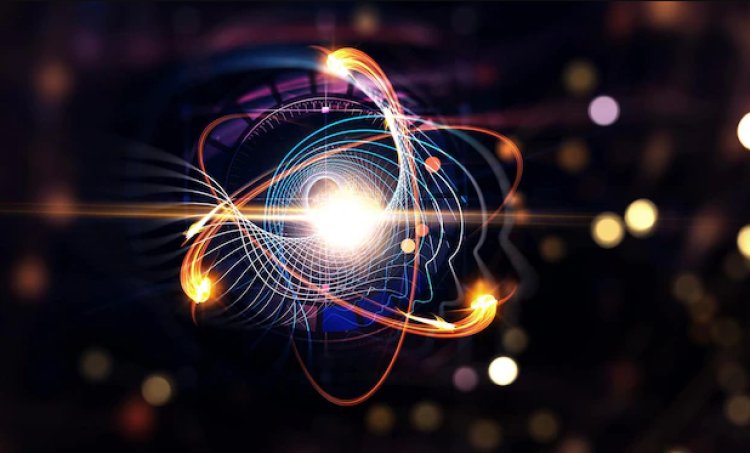6 Quantum Algorithms That Can Transform the World
In the realm of quantum computing, where classical bits take a quantum leap into the world of qubits, algorithms play a pivotal role.
Share this Post to earn Money ( Upto ₹100 per 1000 Views )

In the realm of quantum computing, where classical bits take a quantum leap into the world of qubits, algorithms play a pivotal role.
These quantum algorithms, designed to harness the unique properties of quantum mechanics, have the potential to revolutionize various domains.
As we delve into the intricate landscape of quantum computation, we explore six quantum algorithms poised to change the world.
1. Shor's Algorithm: The Cryptography Cracker
1.1 Overview
Shor's Algorithm, a groundbreaking quantum algorithm named after mathematician Peter Shor, aims to dismantle the cryptographic foundations of the digital world.
This algorithm holds the key to efficiently factoring large numbers, a task considered intractable for classical computers.
In the realm of encryption, where security relies on the difficulty of factoring large numbers, Shor's Algorithm poses a significant threat to widely used cryptographic schemes.
1.2 Implications for Cryptography
The ability to efficiently factorize large numbers challenges the security of widely adopted cryptographic protocols such as RSA. As quantum computers advance, the need for post-quantum cryptographic algorithms becomes imperative to safeguard sensitive information.
2. Grover's Algorithm: Searching at Quantum Speed

2.1 Overview
Grover's Algorithm, devised by Lov Grover, tackles the classical search problem with unprecedented efficiency. While classical algorithms require O(N) operations to search an unsorted database of N items, Grover's Algorithm achieves this in roughly O(√N) operations. This quadratic speedup has implications for various search-related tasks, from optimization problems to database queries.
2.2 Applications Beyond Search
Beyond its prowess in database search, Grover's Algorithm finds applications in solving complex problems such as constraint satisfaction and combinatorial optimization. Its efficiency in searching unsorted databases could impact a myriad of industries, optimizing tasks from logistics to data analysis.
3. Quantum Machine Learning Algorithms: Enhancing AI
3.1 Overview
Quantum Machine Learning (QML) algorithms represent the fusion of quantum computing with machine learning tasks. These algorithms leverage quantum properties to enhance classical machine learning processes. Variational Quantum Eigensolver (VQE), Quantum Support Vector Machines (QSVM), and Quantum Boltzmann Machines are notable examples.
3.2 Quantum Advantage in Machine Learning
QML algorithms excel in solving complex optimization problems, offering a quantum advantage over classical counterparts. From drug discovery to financial modeling, these algorithms pave the way for accelerated advancements in machine learning applications.
4. Quantum Fourier Transform: Speeding Up Signal Processing
4.1 Overview
The Quantum Fourier Transform (QFT) is a quantum analogue of the classical Fourier Transform, known for its efficiency in processing and analyzing signals. QFT allows quantum computers to perform Fourier Transforms exponentially faster than classical computers.
4.2 Applications in Signal Processing
QFT's potential applications span a wide range, including signal processing tasks such as image and sound analysis. The speedup in Fourier Transforms opens new avenues for faster and more intricate signal processing, impacting fields from telecommunications to medical imaging.
5. Quantum Approximate Optimization Algorithm (QAOA): Tackling Optimization Challenges
5.1 Overview
QAOA addresses complex optimization problems, offering a quantum advantage in finding near-optimal solutions. Developed by Edward Farhi and team, this algorithm targets tasks like portfolio optimization and logistics, where finding optimal solutions is notoriously challenging.
5.2 Solving Real-World Optimization Problems
QAOA's ability to handle optimization challenges extends its utility to real-world problems, including financial portfolio management, supply chain optimization, and resource allocation. The quantum advantage in optimization tasks hints at transformative possibilities for industries grappling with intricate decision-making processes.
6. Quantum Walks: Paving the Way for Quantum Search
6.1 Overview
Quantum Walks, inspired by classical random walks, showcase quantum particles' unique behavior in a controlled quantum environment. These algorithms simulate particle movements in discrete graphs, offering a quantum advantage in search algorithms.
6.2 Quantum Search and Beyond
Quantum Walks play a crucial role in the development of quantum search algorithms, further enhancing search efficiency. Beyond search, the principles of quantum walks find applications in quantum-enhanced algorithms for graph analysis and pattern recognition.
Challenges of Implementing Quantum Algorithms
1. Quantum Hardware Limitations
1.1 Quantum Bit (Qubit) Stability
Quantum computers rely on qubits, which are highly susceptible to environmental factors leading to instability. Maintaining qubit coherence for an extended duration, known as quantum coherence time, remains a significant challenge.
1.2 Error Rates and Quantum Error Correction
Quantum computers are prone to errors due to factors like decoherence and noise. Implementing effective quantum error correction mechanisms is crucial, but current strategies demand additional qubits, increasing the computational overhead.
2. Scalability Issues
2.1 Quantum Gate Count
Quantum algorithms often require a considerable number of quantum gates to perform complex computations. As the algorithm complexity increases, scalability becomes a substantial concern, posing challenges in maintaining a coherent and error-free quantum state.
2.2 Quantum Circuit Depth
Quantum circuits with deep structures, necessitated by complex algorithms, face challenges in maintaining quantum coherence. Longer quantum circuits amplify the impact of errors, affecting the overall reliability and performance.
3. Quantum Software Challenges
3.1 Algorithm Design and Mapping
Creating quantum algorithms demands a shift in paradigm from classical computing. Designing algorithms that exploit quantum parallelism while ensuring efficient mapping onto existing and evolving quantum hardware architectures is a non-trivial task.
3.2 Quantum Compilation Complexity
Quantum compilation, the process of translating high-level quantum algorithms into machine-executable instructions, introduces challenges in optimizing for various quantum hardware configurations. Achieving efficient compilation for diverse quantum devices is an ongoing challenge.
4. Quantum Algorithm Interfacing
4.1 Integration with Classical Systems
Quantum algorithms often need to interface with classical systems for pre-processing, post-processing, and data input/output. The seamless integration of quantum and classical components introduces complexities related to data transfer, synchronization, and ensuring consistent outcomes.
4.2 Quantum Cloud Computing Challenges
As quantum computing moves towards cloud-based services, concerns related to data privacy, security, and efficient utilization of remote quantum resources become critical. Establishing robust quantum cloud computing frameworks requires addressing these challenges.
5. Quantum Algorithm Accuracy
5.1 Quantum State Fidelity
Maintaining high fidelity in quantum states is essential for the accuracy of quantum algorithms. Noise, decoherence, and gate errors can degrade the fidelity, impacting the reliability of quantum computations.
5.2 Verification and Validation
Ensuring the correctness of quantum algorithms and verifying their outputs pose unique challenges. Classical methods of algorithm validation may not be directly applicable, necessitating the development of new techniques for quantum algorithm verification.
6. Resource Intensiveness
6.1 Quantum Resource Requirements
Quantum algorithms may demand a large number of qubits, quantum gates, and complex entanglement structures. The resource-intensive nature of quantum computations raises concerns about the practicality and cost-effectiveness of implementing certain quantum algorithms.
6.2 Quantum Hardware Accessibility
Access to state-of-the-art quantum hardware remains limited, restricting the broader adoption of quantum algorithms. Overcoming the challenges associated with making quantum resources more accessible is crucial for advancing quantum computing applications.
Considerations for Quantum Algorithm Deployment
1. Realistic Expectations
1.1 Identifying Quantum Advantage Scenarios
Organizations must carefully evaluate scenarios where quantum algorithms offer a clear advantage over classical counterparts. Realistic expectations about the current limitations and future potential of quantum algorithms are essential for informed decision-making.
1.2 Hybrid Approaches
Hybrid quantum-classical computing approaches, where quantum algorithms complement classical systems, can mitigate some challenges. Identifying suitable hybrid models aligns quantum computing capabilities with practical use cases.
2. Collaboration and Research
2.1 Cross-Disciplinary Collaboration
Addressing quantum algorithm challenges requires collaboration between quantum physicists, computer scientists, mathematicians, and domain experts. Cross-disciplinary research efforts can lead to innovative solutions and advancements.
2.2 Investment in Quantum Education and Research
Investing in quantum education and research is vital for developing a skilled workforce and advancing the understanding of quantum algorithms. Supporting academic and industrial research initiatives accelerates progress in overcoming existing limitations.
3. Quantum Error Mitigation Strategies
3.1 Error Mitigation Techniques
Research into effective error mitigation strategies, including error-correcting codes and fault-tolerant quantum computing, is essential. Developing techniques that minimize the impact of errors on quantum computations enhances the reliability of quantum algorithms.
3.2 Quantum Hardware Improvement
Continued advancements in quantum hardware, including improvements in qubit stability, coherence times, and error rates, contribute to overcoming existing limitations. Quantum hardware development should align with the requirements of diverse quantum algorithms.
4. Standardization and Benchmarking
4.1 Establishing Quantum Algorithm Standards
The establishment of standards for quantum algorithms facilitates benchmarking and comparison. Defining metrics for algorithm performance, accuracy, and efficiency allows for objective assessments and advancements.
4.2 Quantum Algorithm Libraries
Developing standardized quantum algorithm libraries can streamline the deployment and optimization of quantum algorithms. Open-source collaborations in creating comprehensive quantum algorithm repositories benefit the broader scientific community.
Leveraging Quantum Power with Frontier Internet and TV Bundles
Connecting the Quantum Future
As quantum algorithms chart a course for transformative advancements, the role of robust internet connectivity cannot be overlooked. Organizations venturing into the quantum realm, harnessing the power of algorithms like Shor's and Grover's, need reliable connectivity. Frontier Internet and TV bundles emerge as a dependable choice, ensuring seamless data transfer and communication essential for quantum endeavors.
Conclusion: Quantum Algorithms Shaping Tomorrow
In the ever-evolving landscape of quantum computing, these algorithms stand as harbingers of revolutionary change. From dismantling classical encryption to accelerating machine learning, each algorithm opens new possibilities. As organizations navigate the quantum realm, the synergy of powerful algorithms and robust internet connectivity, exemplified by Frontier bundles, becomes the driving force propelling us toward a future defined by quantum-powered innovation.

 sarawilliams
sarawilliams 




